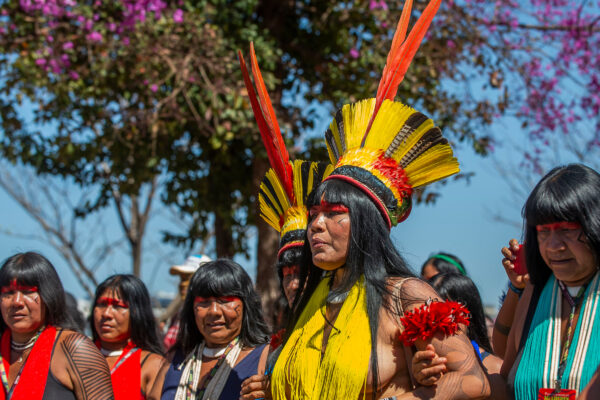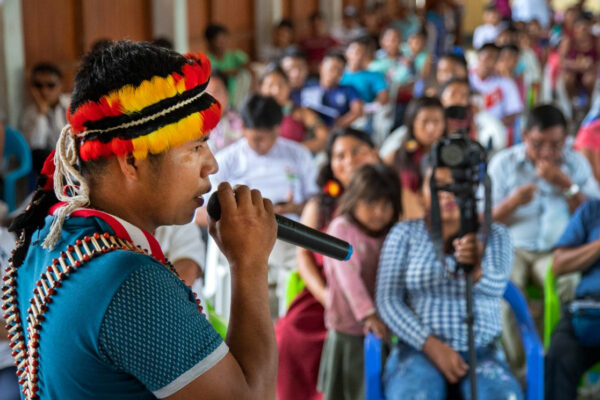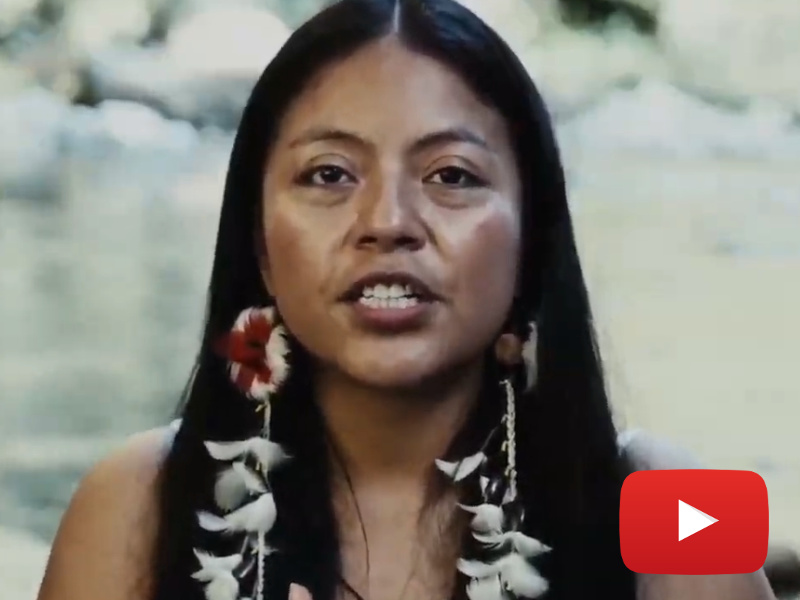As the world prepares for COP30 – the United Nations’ next major climate summit – all eyes are on the Brazilian Amazon, where the conference will take place for the first time.
While government negotiators will gather behind closed doors, some of the most powerful climate action will happen outside official venues. Grassroots movements, Indigenous leaders, and civil society organizations are mobilizing across Brazil to spotlight the real path forward: climate justice rooted in food sovereignty, land defense, and ancestral wisdom.
A centerpiece of this people-powered movement is an extraordinary 3,000-kilometer Caravan stretching from Brazil’s soy-producing powerhouse, Mato Grosso state, to COP30’s host state, Pará – notorious for rampant deforestation and the unpunished murders of Earth Defenders. The Caravan will follow the Amazon’s main grain export route to China and Europe, denouncing agribusiness’s destructive model and presenting a bold, living alternative.
Along the way, it will literally nourish the movement for change: the Caravan will supply healthy, agroecological food for thousands of collective meals served en route and at the People’s Summit – a major parallel event expected to convene 15,000 people fighting for social and environmental justice.
The Caravan is a concrete reminder that long before transnational logistics corridors cut through the forest for private profit, the Amazon was – and remains – a place of immense cultural and biological diversity. It has long hosted vibrant grassroots technologies and traditional knowledge. Recent research even disproves the notion that the Amazon is a primordial forest, showing that much of its massive biodiversity was planted and cultivated by Indigenous peoples over thousands of years.
Thanks to the struggle of Indigenous peoples, Amazonian communities, and social movements, this life-giving region has withstood intense pressure. Without them, vast areas would have already been converted into soy monocultures, cattle ranches, mining scars, and dead rivers.
These guardians have safeguarded our future from the greed and profit of oligarchs and transnational corporations. They have been showing us the way – they are the answer, as the Association of Indigenous Peoples of Brazil (APIB) has pointed out.
President Lula’s defeat of Jair Bolsonaro was a crucial step in the struggle to rein in the Amazon’s destructive forces, but we are far from actually winning this battle. The extreme right remains powerful in Brazil. The regressive “ruralista” agribusiness caucus holds 303 out of 513 seats in Brazil’s National Congress. And despite positive commitments and concrete improvements from Lula’s government, some of his own ministers are aligned with the destructive goal of transforming Brazil into the world’s largest granary.
The proposed Ferrogrão mega-railway is a key part of this dangerous strategy. Designed by Cargill and other major commodity traders, the project would enable a sixfold increase in soy and corn exports along the Tapajós River. In doing so, it would incentivize even more destruction of the Cerrado and Amazon biomes – turning vibrant forests into plantations and violating the rights of Indigenous and local communities. Ignoring alternative logistical options and featuring profoundly faulty planning, Ferrogrão is the opposite of what the Brazilian people need.
A sign held by Indigenous protesters in Brasília during this year’s Free Land Camp summarized a common sentiment: it is the fault of agribusiness that food is currently so expensive in Brazil. There is no need for more soy to feed animals on distant shores – the people want food!
At one of COP30’s most striking popular mobilizations, the Caravan will bring a timely message: to serve our real needs, a major shift must happen – constraining today’s soy export–oriented development and boosting regenerative, family-based agriculture and agroecology.
Amazon Watch is proud to support this struggle. We remain committed to working in solidarity with local partners to challenge destructive agribusiness and promote agroecology as a vital alternative vision for development. The struggle for food security and sovereignty is inseparable from the struggle for climate justice and the preservation of the Amazon.
The future of humanity depends on us succeeding in these crucial battles, from the halls of COP30 to the popular kitchens nourishing our resistance. To be victorious, we must be as creative as we are steadfast – building strength by forging common ground with movements that inspire an ever-growing base. From defending human rights and the forests stewarded by Indigenous peoples to nourishing a regenerative vision for Amazonian agriculture, change must spring from many sources.
Of course, there is much to learn from Indigenous ancestral knowledge and traditional agricultural techniques to enhance our relationship with nature and food production. As we approach COP30, let’s not be distracted by tired debates and performative diplomacy. Something far more powerful is happening, and it began long before our lifetimes. In the words of Indigenous philosopher Ailton Krenak: “The future is ancestral.”














